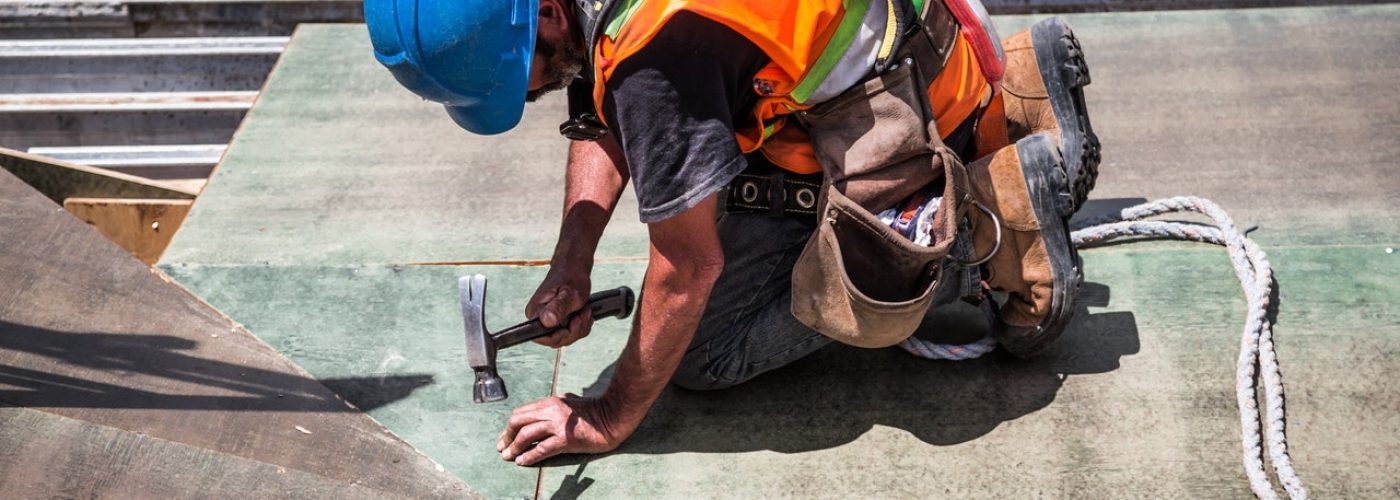Construction work is risky business, with accidents, injuries and property damage all liable to happen on a site. As a builder, the hazardous nature of your job brings with it a need for a comprehensive insurance policy to cover the financial impact of any incidents or claims. Issues can pop up unexpectedly, so if you don’t have insurance in place, read on to learn more about the types of policies your construction business might need to be protected financially.
Builders Public Liability Insurance
Builders public liability insurance is a fundamental policy to have in place for any type of construction worker. It provides cover against any claims made by a client or a member of the public who has suffered injury, or damage to a property, at the expense of building work you are carrying out.
Problems that occur during a building project can often be unpredictable and unavoidable, whether that’s flood damage caused by accidentally nailing through piping or a member of the public injuring themselves by tripping over wires. As insurance expert Tradesman Saver points out, public liability insurance offers compensation for any personal injuries and property damage as well as covering the legal costs involved, giving you peace of mind that unforeseen circumstances won’t jeopardise your livelihood.
Professional Indemnity Insurance
Although a customer may not have building expertise, the phrase “the customer is always right” certainly comes into play when evaluating the professional standard of your services. If a customer is not satisfied that you’ve met their expectations, they may decide to take legal action. This is where professional indemnity insurance comes in, which protects you against such claims.
This type of insurance covers legal costs and expenses that may occur during the process of defending the claim made against you. Mistakes are easily made, but one small error could leave you in a dire financial situation if you don’t have the right cover in place to protect your business.
Therefore, if you’re running a construction business, you should carry professional indemnity insurance to cover against mistakes and errors that may occur while providing professional services.
Employers Liability Insurance
Employers liability insurance is a legal requirement for any business that hires, or plans to hire, a team of staff, regardless of who you’re employing and whether they’re a contractor, sub-contractor, or freelancer. This protects all employees against claims related to illness or injuries sustained during working hours.
It only takes one small mistake or accident to injure someone, so it’s vital to check you have insurance to cover all possible risks. Besides, the legal requirement to have employers liability insurance means that businesses operating without are subject to fines of £2,500 for each day they don’t have proof of coverage.
Contractors All-Risk Cover
This covers any work carried out that is accidentally destroyed or damaged before completion, as well as temporary buildings erected during construction. A contractors all-risk policy will also insure your business against any necessary repairs onsite or if work needs to be redone due to unpreventable causes, such as floods, fires, storms, vandalism and theft. Contractors all-risk covers the two primary types of risks for builders—property damage and third party damage. CAR insurance coverage is common for such construction projects as buildings, water tanks, sewage treatment plans, flyovers, and airports.
Tools and Equipment Insurance
One final insurance policy to consider for your building business, tools and equipment insurance covers any costs relating to damage or theft of your tools and equipment. According to recent data, 1 in 3 tradespeople have had their tools stolen, costing victims over £3,000 on average.
If your tools are stolen, not only will you take a financial hit from the actual cost of the equipment, but projects already under construction may be delayed, leading to further financial strain on the business. Any new business may also have to be declined – you can’t risk being unable to complete a job on time, or without the correct tools. Having a policy in place will protect you against any unforeseen costs.
Employment Practices Liability Insurance
While the aforementioned insurances are crucial for the physical aspects of your business, it’s equally important to consider the human side. This is where Employment Practices Liability Insurance (EPLI) comes in. It covers businesses for legal claims arising from employment-related issues, such as discrimination, harassment, or wrongful termination. A construction business needs to have EPLI, as the construction industry is particularly susceptible to employment-related lawsuits.
Some of the common employment-related claims that EPLI covers for your construction company include discrimination based on race, color, religion, sex, national origin, age, disability, or genetic information, claims of sexual harassment, claims of termination without cause or in violation of an employee’s contract, claims of retaliation against an employee for whistleblowing or for exercising their legal rights, and improper hiring and firing practices.
EPLI can provide significant financial protection for your business when sued for employment-related claims. The cost of defending against an employment lawsuit is often high, and EPLI can help to cover the cost of legal fees, settlements, and judgments.
In addition to financial protection, EPLI can help your company avoid negative publicity from an employment lawsuit. A lawsuit can damage your business’s reputation and make attracting and retaining employees difficult. EPLI can help protect your construction business’s reputation and ensure it can operate without disruption.





